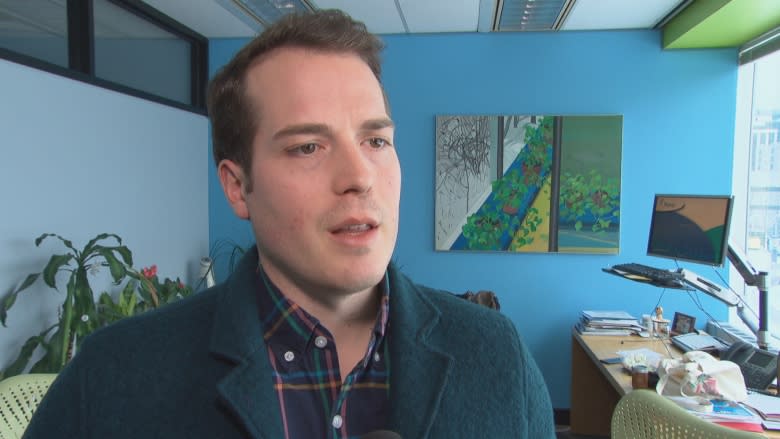A licence to be a landlord? Ottawa councillor mulls pilot project
An Ottawa city councillor says he wants to explore the idea of licensing landlords in order to provide tenants with added protection.
Mathieu Fleury's comments on CBC Radio's Ottawa Morning follow a report by Ottawa ACORN last week recommending landlords be required to obtain a municipal license in order to operate. ACORN advocates for people living on low incomes.
The Rideau-Vanier councillor believes it's an approach that could give the city's current enforcement system, which relies on complaints, more muscle when it comes to landlords who ignore or drag their heels on tenant problems.
"The complaint rests with the complainant and in this case it's often the tenants," says Fleury. "So, as soon as they move out, we go back to square one. If the landlord's not compliant we're dependant on the following tenant to pursue the issue."
Group says licensing would boost accountability
A survey of its members by Ottawa ACORN released last Friday suggested widespread dissatisfaction with landlords. Many of the complaints concerned mould, lack of heat, bed bugs and cockroach infestations. The report says licensing landlords could help to alleviate such problems.
Brooklynne Eeuwes experienced troubles with an Ottawa landlord when she moved into an apartment in Old Ottawa East last September. The ACORN member said her unit was overrun with cockroaches and despite repeated complaints to the landlord, nothing was done.
"Our work orders were ignored. Our emails were ignored," says Eeuwes. "So we began treating the cockroaches ourselves, pouring bleach down the drains, we duct taped our entire unit inside and out, started spraying our own repellents until my cat got sick and we couldn't do that anymore."
After struggling for several frustrating months and finally enlisting the help of Ottawa ACORN, Eeuwes was able to break her lease six months early without penalty.
She feels her experience may have been different if her landlord had been obliged to hold a licence.
"That would turn the accountability back on the landlord and so right now there's definitely a feeling of tenant hopelessness across the city. By having the financial penalties, it would ensure that the financial cost would remain with the landlord. It wouldn't be something that would fall back on the tenant. It would enable online and physical postings of a landlord registry,"
Fleury said licensing would ensure landlords comply with the law year-round, regardless of whether the unit is occupied or there is a complaint.
"One of the objectives of licensing would be something similar to existing rooming house licenses where you have a yearly compliance review from Ottawa Fire, Ottawa Public Health, and from Building Code Services," said Fleury. "The idea would be a review of the elements and you have to be compliant with all of the property standards and property maintenance elements."
Landlords say licensing unnecessary
However, a group that represents about 400 landlords in the city doubts licensing will solve any issues.
"We have laws on the books today. All it takes is a phone call. Dial 3-1-1 and there is an enforcement mechanism," said Victor Menasce, president of the Ottawa Real Estate Investors Organization. "Layering another regime on top of an existing one because the first one isn't working, how does that help?"
Fleury agrees implementing landlord licensing throughout the city is premature. However, he is interested in a possible pilot project in his Rideau-Vanier ward as a way of working out the details and the impact.
"I've worked with ACORN in the past and what we're speaking about was trying it in student rentals for example in a zone such as Sandy Hill where you do have frequent turnover and you do have tenants that might not know where to report issues like mould, like heating, elements like that."
Fleury would like to see council pursue the landlord licensing pilot project after next year's municipal elections.



